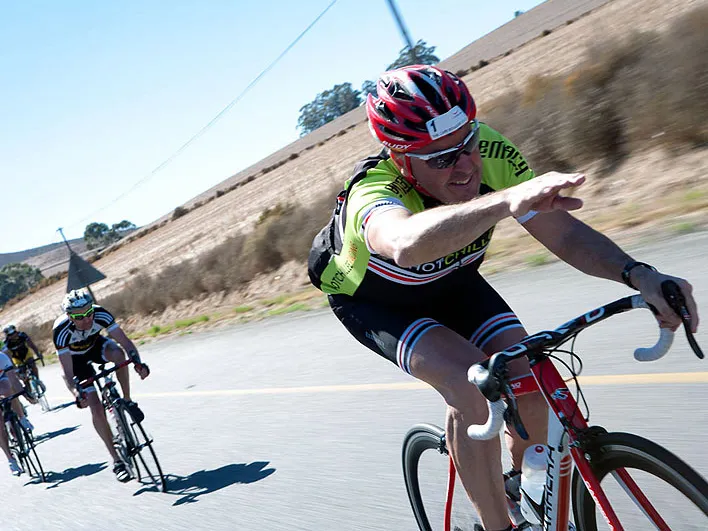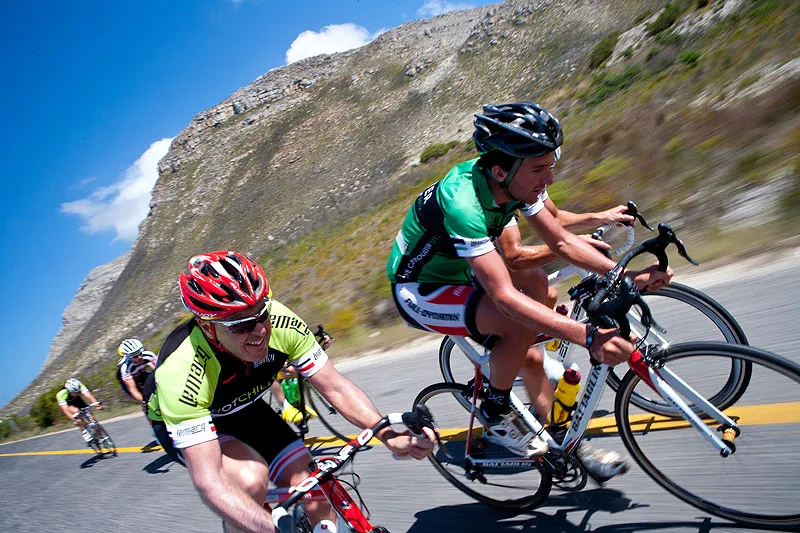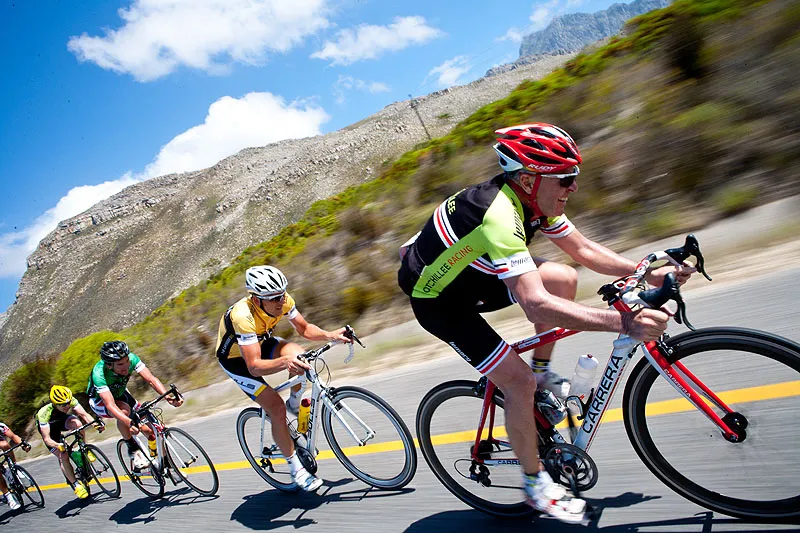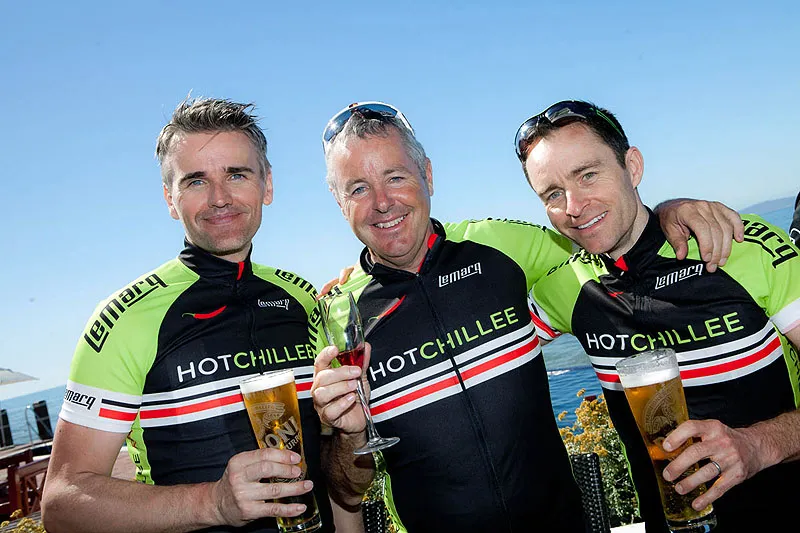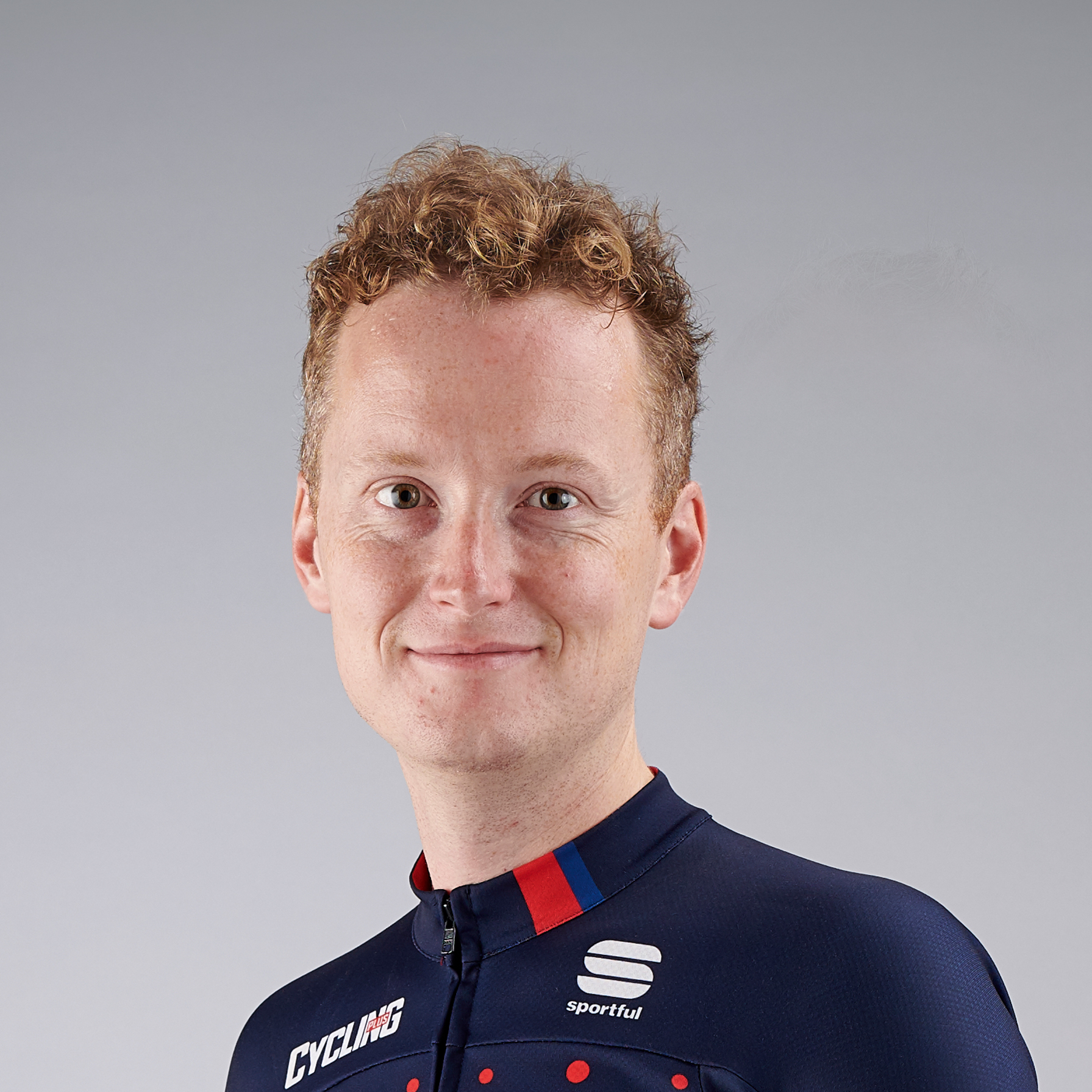It may be 25 years since he captured the historic Triple Crown – the Tour de France, Giro d'Italia and World Championships – in the same year, but Irish legend Stephen Roche's appetite for cycling shows no signs of abating.
Later this year he'll release his autobiography, Born to Ride – a book that uses his 1987 feat (only matched by Eddy Merckx, in 1974) as a springboard to explore his life and career; the highs of victory, the lows of defeat, the doping allegations, the injuries and everything else in between.
It's clear from our time with Roche, during this spring's four-day Cape Rouleur sportive in South Africa, just how big a part cycling still plays in his life. Whether it's taking part in challenges such as the Rouleur, sitting on the UCI's Professional Cycling Council (CCP) or running his own cycling holidays in Mallorca, he still has fingers in a lot of pies.
It's been that way ever since he discovered the bicycle in his early teens. While some racing cyclists ride their bike simply as a way of making a living, Roche told BikeRadar that he's always had passion for leisure cycling. This love for the bike was instrumental in lifting him out of the doldrums brought on by injury, as well as the uncertain months following his retirement in 1993.
"When I finished, I had people telling me I had to try different sports, running or swimming, because I was saturated from all the miles," Roche told us. "When you hear it from so many people, you start to believe it. One day, three or four months after retiring, I thought 'why am I running?' My kicks are in cycling. People were telling me I was saturated but I wasn't, I just missed it. So I pulled out an old bike from the shed, rode it and thought, 'wow, that's nice'. So I stayed cycling. It's never been secondary apart from those few months when I was trying to convince myself that I was better off trying something else".
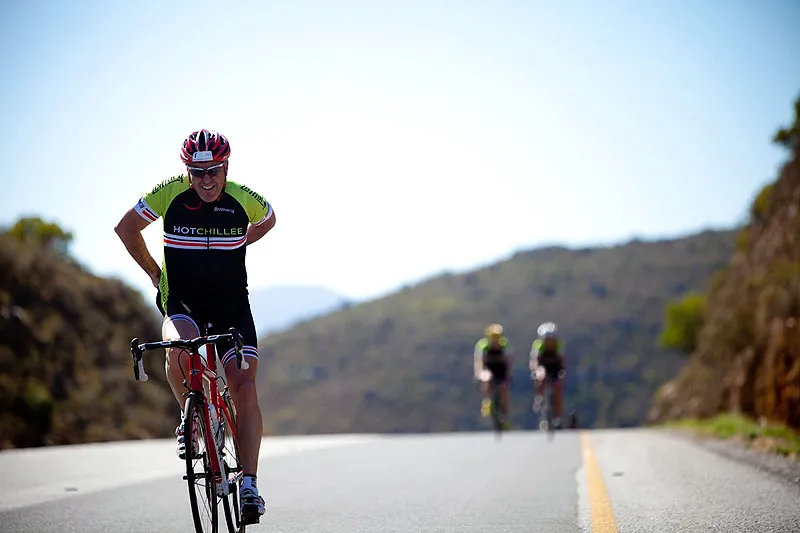
CCP
Roche's role on the board of the CCP seems to get his juices flowing as much as riding his bike does. It replaced the ProTour Council upon the creation of the WorldTour in 2011 and includes representatives of teams, organisers and the UCI, such as Jonathan Vaughters, Christian Prudhomme and Eric Zabel (Roche was nominated by the UCI as a representative of the governing body). The 12-man board convenes a meeting every six months where they bat around ideas and try to find solutions to issues in the sport. They don't make new rules as such, rather debate new and prospective rules.
So what has Roche brought to the table? The 'sticky bottle', whereby the rider grabs a bottle from a team car while the manager still has hold of it, effectively getting a tow, is a bugbear that he hopes to crack down on. He's also lobbying against team cars helping their riders back on again after a toilet break or mechanical problem; why wait for someone to go through a rear window before doing something about it, he argues.
"We’re trying to upgrade the image of cycling and [yet] here we are tolerating things like this," he said. "At crashes, riders fall and spend five minutes on the ground straightening up their shirt and tie and making sure everything is okay before getting back on the bike again. You should be getting back on as fast as possible and then realise your shoulder is broken. They aren’t getting back on straight away, they’re waiting because they know there's a car to tow them back on. Its not ethically right, it’s a form of cheating and it confuses the public."
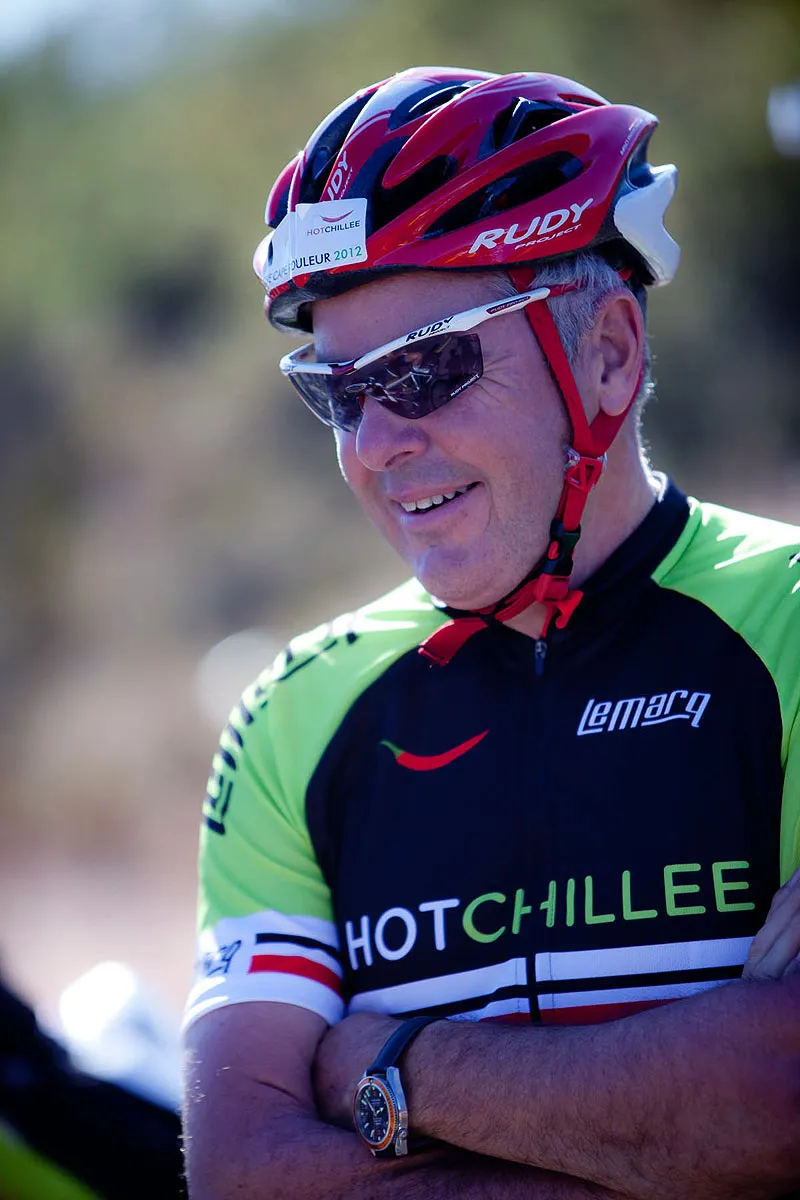
Getting shirty
Riders unzipping their jerseys all the way down, revealing their white chests in all their ghostly glory, also attracts his ire. Why have clothing manufacturers spend millions on fabric development and aerodynamic bikes for them to have it flapping around in the wind? Sponsors, he says, lose out too.
"You can see their Christmas present from their wives hanging round their neck but nobody's getting any value out of it. If you don’t stop it now, they’ll have no jerseys on shortly. They talk about heat, about not being able to breathe. Bullshit. Footballers, every time they score a goal, pull their jersey off but it was banned because it didn't look nice. Why do we tolerate it in cycling?
"There were never any rules before, so there weren't any arguments. Now the UCI are putting rules in place it's upsetting people, but its only upsetting them because they're not used to being told what to do. Every new rule will always upset someone.
"Looking back, I was totally against helmets. I was the guy back in the early '90s saying to [former UCI president] Hein Verbruggen, 'it's lovely you making these golden rules when you’re sat in your air conditioned office in Geneva'. Riders do rear up against certain rules but in 10 years time they might understand why they were made. Punish a kid the first time and they’ll despise you for it but at the same time it's for their own good".
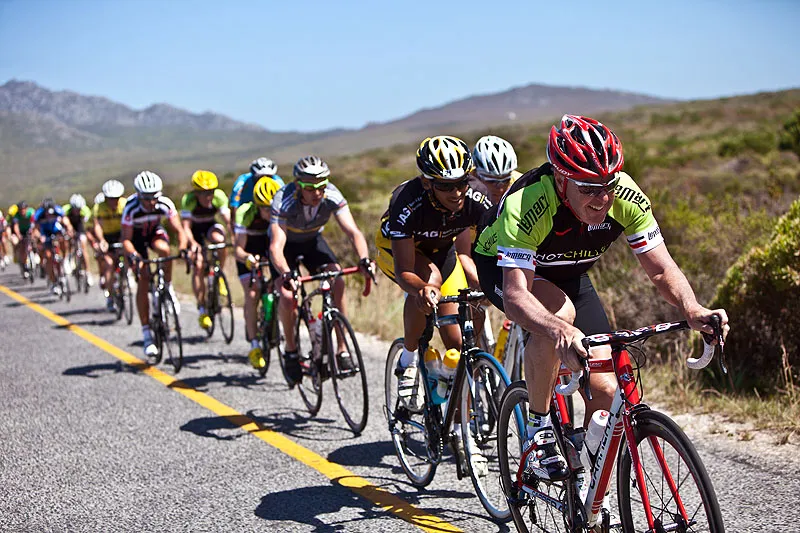
Radio silence
Race radios are another blight on the sport that Roche would like to see the back of. The guys who've always been able to rely on them, the ones who don't know any different, he says, are the ones who disagree. He craves the good old days where riders would look at their road manual and compare it to maps to look for gradients on a climb or crucial points on a stage, rather than being drip-fed the information from the sanctuary of the team bus.
"They say they need them to communicate with each other, but why? Can’t you put your hand up and call your friend over? Talk to him – you don’t need a radio to do that. I’m all for modern tech but there are certain things that should be left aside or bike riders will just become robots.
"Cycling’s not just about men in Lycra turning pedals, it's about the performance, public, television, newspapers, sponsors, everybody. Cyclists today believe it’s only about themselves when in fact, if they haven’t got sponsors, if they haven’t got the public behind them, there’s no reason to have guys riding bikes".
Roche believes the abolition of race radios in the junior category will help youngsters develop a racing brain for themselves, but it'll take a generation before it feels normal. While he acknowledges it's not going to reinvent the wheel in terms of bike racing, he believes it'll give riders their credibility back.
"They’ve been looked upon as zombies, no brains, for years, and all the credit for tactics has been given to the team managers in the car," he said. "I wouldn’t have liked to have had people thinking all my results and tactical skills had come from the car behind."
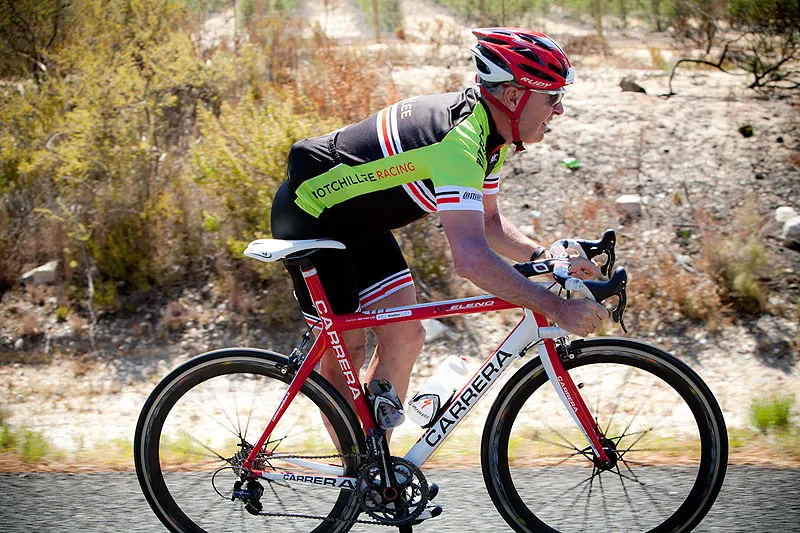
Globe trotting
With the spread of professional cycling into previously untapped territories, does the packed calendar carry the risk of watering down the spectacle? There's barely an off-season now, but Roche reckons current pros don't race nearly as much as they did in his day, when 130 days in the saddle each year wasn't uncommon.
"It's a problem, but it's a good problem," he said. "Cycling can't just stay French or Spanish, it has to be globalised. Every other sport is global, so why shouldn't cycling be?" Roche believes the expansion of cycling will bring with it a financial boost, and that the emergence of Africans in the pro peloton is vital for the sport's future.
"There are kids today that are probably better cyclists than they are footballers but either nobody has given them a bike or cycling in their community hasn't been the sport," he said. "They should be encouraged to ride bikes, it'll be to cycling's benefit. I'd prefer being a world champion knowing that all the nations were involved; beating the world rather than just the cycling world."
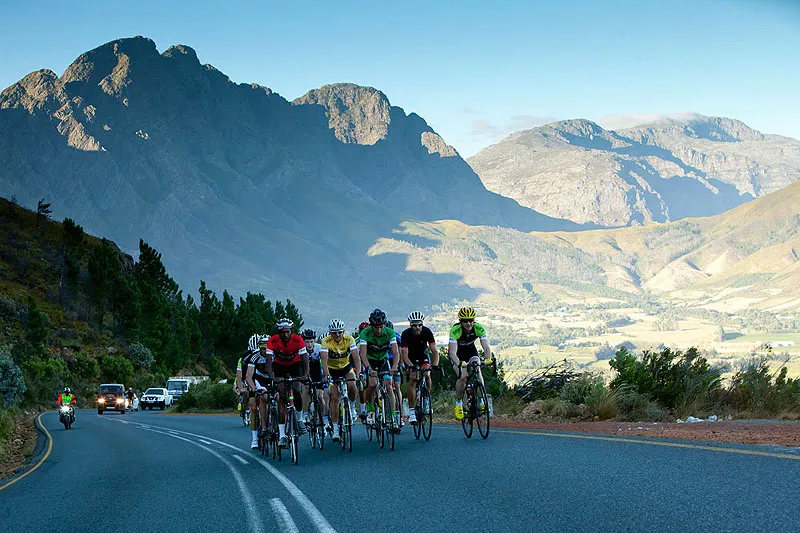
The Cape Rouleur was staged in the Western Cape region of South Africa. In the photo above, the riders rise above the valley in Franshhoek where the four-day event was based
Taking care of business
While Roche's work with the UCI is important, it's very much a part-time gig. An increasing amount of his time is devoted to his training camps in Palmanova, Mallorca which, because of his hotel in south France, he was forced to operate at arm's length for several years.
With the hotel gone, he's now out there every other weekend, riding alongside the holidaymakers who've been attracted by the Roche name. With a new management team in place, he's revamped the website and restructured the firm to bring it up to date with where the scene is in 2012. Once the road cycling is back up to speed, he plans to expand into mountain biking and triathlon.
Roche will return to Ireland on 13 May to ride the Tour de Cure, a multi-distance charity event in East Cork which he's been an ambassador for since the inaugural event in 2009. He'll also continue his close association with HotChillee, the events firm behind The Cape Rouleur, which began after he struck up a friendship with boss Sven Thiele in 2008, by once again riding their London-Paris tour in June. Add to that the book release the same month and 2012 looks to be a fitting way to celebrate one of sport's great achievements.
To read more about our experience with Roche in South Africa at The Cape Rouleur, pick up the latest issue (262) of Cycling Plus magazine, on sale from 2 May.
